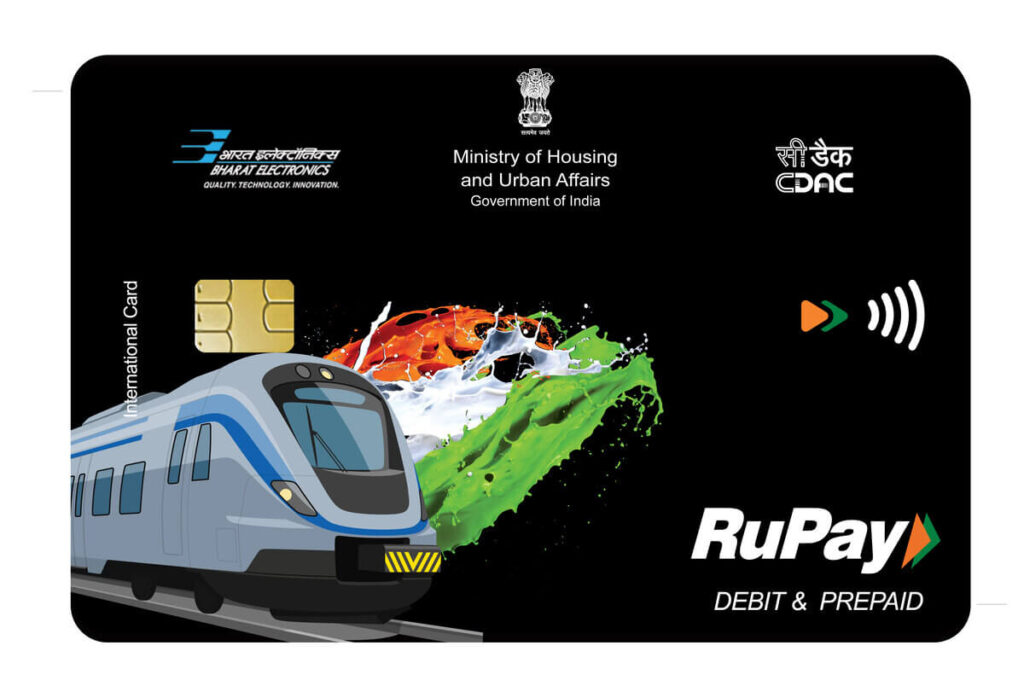Good morning, Bengaluru!
🌦️ Today’s weather: Light rains and sunny breaks.
🧐 Did you know? The Tank Fisheries Research (TFR) Unit was founded in 1962 to examine the fishery resource potential of India’s peninsular states. It is now the Regional Research Centre of ICAR-CIFA.
🚇 Pushing national mobility

Namma Metro is clamping down on Contactless Smart Cards (CSC) to push national mobility.
Story so far: Starting today, Namma Metro will limit sales of Contactless Smart Cards (CSC) to boost National Common Mobility Card (NCMC) sales available at all metro stations, as announced by the Bangalore Metro Rail Corporation Limited (BMRC).
- NCMCs can be bought at metro stations, while CSCs will only be sold from 8 am to 11 am and 5 pm to 8 pm.
- Metro officials emphasise the advantages of using NCMCs for daily users. Namma Metro’s CSCs are for metro travel only, while RuPay NCMCs are versatile, working across transport systems and even for shopping at stores and petrol stations.
History: The NCMC concept was suggested by the Nandan Nilekani committee formed by the Reserve Bank of India. Nilekani proposed measures like government payments in digital form to reduce cash transactions.
- The system also permits smartphone-based entry and exit at Metro stations using the automatic fare collection (AFC) system.
🎣 Sustainable aqua farming


A comprehensive strategy for managing fish populations in urban aquatic environments is a need of the hour.
Story so far: In recent years, Bengaluru’s lakes have seen a notable increase in fish yield, signalling environmental improvement. However, as fish populations rebound from previous pollution, experts and environmentalists are concerned about uncontrolled growth and its potential consequences.
- Deepa Krishnan from the Bruhat Bengaluru Mahanagara Palike (BBMP) notes that while aquatic species are growing, the real issue is excessive exploitation driven by greed.
- Raghavendra B Pachhapur from ActionAid in Bengaluru points out that local fishermen’s use of firecrackers to fish disrupts unique bird species and harms aquatic ecosystems.
Well-rounded approach: Experts argue that it’s vital to understand the complexities where apparent improvements can cause unexpected issues. They advocate regulating fishing, maintaining water quality, and encouraging diverse aquatic life.
🚔 Tech-forward law enforcement


Bengaluru City Police utilise advanced technology to prevent crime and manage criminal activity.
Story so far: Bengaluru City Police are using technology like Mobile Crime and Criminal Tracking Network System (MCCTNS) and the Central Equipment Identity Registry (CEIR) to prevent crime and track stolen items. These tools help trace and manage criminal activity effectively, aiding in faster detection and recovery of stolen goods in the city.
- CEIR blocks stolen phones, and MCCTNS facilitates real-time criminal database searches, efficiently uncovering the backgrounds of individuals with dubious records.
- Last year, MCCTNS scanned 8,26,000 fingerprints, finding 10,400 matches. In June and July, 3,00,000 fingerprints were scanned, revealing 1,857 matches.
Suspect behaviour: Joint Commissioner SD Sharanappa explained that MCCTNS doesn’t assess success solely based on matched fingerprints. It identifies people with criminal records, so matches are relatively higher. The system targets suspicious behaviour and arrests individuals with records. However, there are still concerns over privacy and effectiveness.
🏥 Slum-dwellers prefer private clinics


Pharmacists and private clinics are the initial healthcare choices for slum residents.
Story so far: A study by Azim Premji Foundation reveals that slum residents in Bengaluru primarily use BBMP’s Primary Health Centres (PHCs) for antenatal checkups, immunisation, and Thayi cards.
- Despite PHCs being intended for minor ailments and non-communicable disease checkups, residents first turn to pharmacists for external healthcare, followed by private clinics.
- The study surveyed 258 representatives from 21 communities, encompassing about 9,000 residents from Peenya, Hebbal, Bellandur, Kengeri, Koramangala, and Nagarabhavi.
Why though? Private clinics in Bengaluru’s slums are favoured due to their accessibility, night shifts, staff behaviour, treatment quality, hygiene, and familiarity. Although 75% of the 71 clinics used were within walking distance, affordability, waiting times, timings, and emergency access scored low.
- The study, led by Dripta Bal, highlighted that staff behaviour, treatment quality, and timings significantly influenced residents’ choices.
📊 Today’s Poll
(Only subscribers can participate in the polls)
Do you use wearable technology like smartwatches or fitness trackers?
- I use wearables.
- I don’t use wearables.
❓ Today’s Question
(Only subscribers can submit their answers)
What’s your favourite football club?
Reply to this email with your answers.
🗞️ In other news…
- Feeder buses for the Whitefield metro station are in the pipeline.
- New AC buses will operate from Brigade Road to E-City.
- Deputy Chief Minister DK Shivakumar inspected the incomplete Ejipura flyover on Saturday.
- 118 new Indira canteens will be opened in Karnataka.
- A section of Chikkagollarahatti Road in Madanayakanahalli is set to be fixed.
That’s it for today. Have a great day!
